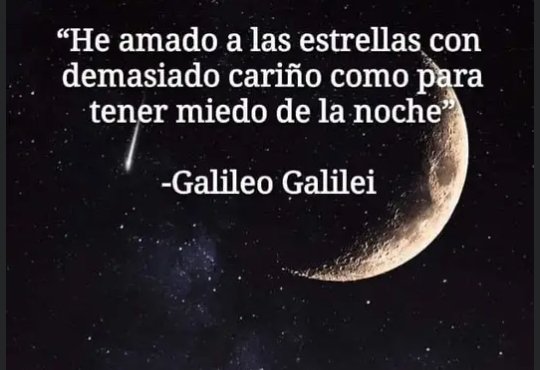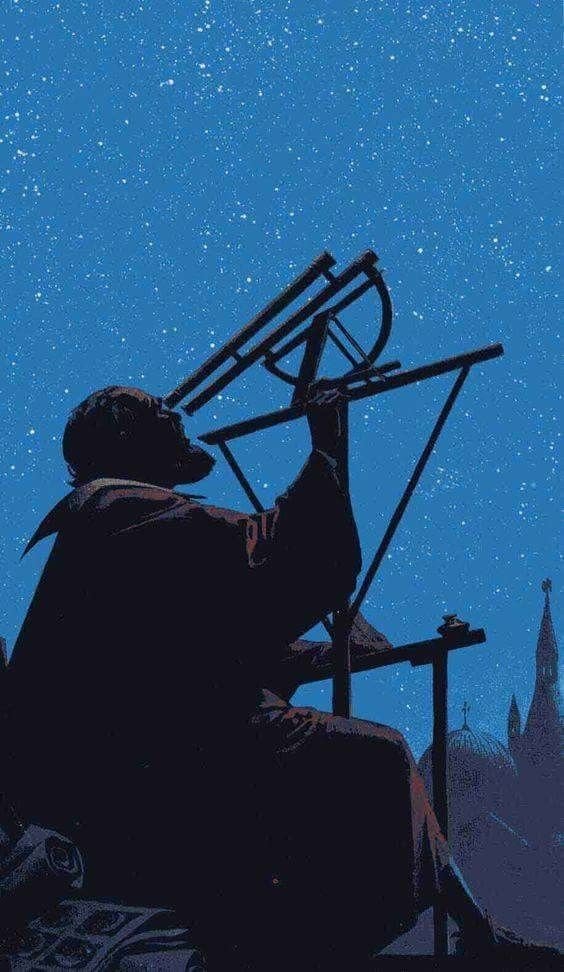Observador visionario, fundador de una nueva era y precursor de la ciencia moderna: Galileo Galilei. (I Parte)

Título: Observador visionario, fundador de una nueva era y precursor de la ciencia moderna: Galileo Galilei. (I Parte)
Muchos son los nombres de grandes representantes de la ciencia que se han escrito en la historia a través del tiempo, sin embargo no puede negarse el reconocimiento que se le debe otorgar, por sus significativos aportes en las bases de la ciencia y para el avance de la humanidad misma, a Galileo Galilei.
Galileo permitió cambiar por completo lo establecido hasta ese momento: los trabajos y tratados de Aristóteles, realizados siglos antes del nacimiento de Jesucristo, que se mantenían como verdad absoluta, ya que los griegos afirmaban que todo podía resolverse pensando, de ese modo las enseñanzas de Aristóteles no admitían discusión. Sin embargo, Galileo, sin restar importancia al razonamiento, sostenía que toda investigación científica debía estar basada en la observación y la experimentación, pues sin éstas las conclusiones que pueden obtenerse resultarían ser falsas.
El hombre que le abrió nuevos caminos a la modernidad científica, nació el 18 de febrero de 1564, en Pisa, Italia. Fue hijo de un músico, Vicenzio Galilei, perteneciente a una familia noble, venida a menos. Aunque su padre quería que fuera médico, la inclinación por la ciencia en Galileo fue mayor. De joven se pasaba días enteros dedicados a la observación e improvisación de experiencias; no obstante, por cumplir con su padre, en el año 1581 comenzó sus estudios en medicina en la Universidad de Pisa, pero deslumbrado por las obras de Euclides y Arquímides conoció -y eligió- el maravilloso mundo de la Física y las Matemáticas, soñando con realizar un día sus propios e importantes descubrimientos en esos campos de estudio.
Se dice que un día, al observar las oscilaciones de la gran lámpara de la catedral, se le ocurrió una idea, para ese entonces nueva, de que sea cual fuere la distancia a la que llegará el péndulo, éste recorrería siempre el trayecto de una parte a otra en el mismo periodo de tiempo; es decir el isocronismo de las oscilaciones del péndulo. Como resultado de este descubrimiento se dedicó al estudio de las matemáticas. Por esa misma época inventó la balanza hidrostática y escribió un tratado sobre el peso específico de los cuerpos sólidos.
El origen de su interés por la ciencia, se despertó gracias a la observación de la naturaleza, la reflexión lógica y la experimentación. Para el 1588, obtuvo la cátedra de Matemáticas de la Universidad de Pisa; allí expuso la teoría de que todos los cuerpos, sin importar cuál sea su peso, caen a la misma velocidad. Para demostrarlo, realizó varios experimentos desde lo alto de la torre de la ciudad. “¿Probó, experimentalmente, alguna vez Aristóteles si dos piedras, una de ellas diez veces más pesada que otra, caen al suelo en tiempos diferentes?”de ese modo preguntaba irónicamente Galileo, sus experimentos demostraron lo contrario. De ese modo, quedaba refutada la venerable teoría aristotélica. En 1591, Galileo se trasladó a Padua, donde sus enseñanzas atrajeron a discípulos de toda Europa.
Continuará...

English: Title: Visionary observer, founder of a new era and forerunner of Moderna: Galileo Galilei. (Part I)
There are many names of great representatives of science that have been written in history over time, however, the recognition that should be granted, for his significant contributions to the foundations of science and for the advancement of humanity itself, to Galileo Galilei cannot be denied.
Galileo made it possible to completely change what had been established up to that moment: Aristotle's works and treatises, made centuries before the birth of Jesus Christ, which were maintained as absolute truth, since the Greeks affirmed that everything could be solved by thinking, in that way Aristotle's teachings did not admit of discussion. However, Galileo, without detracting from the importance of reasoning, maintained that all scientific research should be based on observation and experimentation, because without these the conclusions that can be obtained would turn out to be false.
The man who opened new paths for scientific modernity, was born on February 18, 1564, in Pisa, Italy. He was the son of a musician, Vicenzio Galilei, belonging to a noble family, come to less. Although his father wanted him to be a doctor, Galileo's penchant for science was greater. As a young man he spent whole days dedicated to the observation and improvisation of experiences; however, to fulfill his father, in 1581 he began his medical studies at the University of Pisa, but dazzled by the works of Euclid and Archimides he met -and chose - the wonderful world of Physics and Mathematics, dreaming of one day making his own and important discoveries in those fields of study.
It is said that one day, when observing the oscillations of the great lamp of the cathedral, an idea occurred to him, for that time new, that whatever the distance to which the pendulum will reach, it would always travel the path from one part to another in the same period of time; that is, the isochronism of the oscillations of the pendulum. As a result of this discovery he devoted himself to the study of mathematics. Around the same time he invented the hydrostatic balance and wrote a treatise on the specific gravity of solid bodies.
The origin of his interest in science was awakened thanks to the observation of nature, logical reflection and experimentation. By 1588, he obtained the chair of Mathematics at the University of Pisa; there he expounded the theory that all bodies, no matter what their weight, fall at the same speed. To prove this, he conducted several experiments from the top of the city tower. "Did Aristotle ever prove experimentally whether two stones, one of them ten times heavier than the other, fall to the ground at different times?"thus asked Galileo ironically, his experiments proved the opposite. In this way, the venerable Aristotelian theory was refuted. In 1591, Galileo moved to Padua, where his teachings attracted disciples from all over Europe.
To be continued...
This was a nice read, I already knew the stories but I'm not a guy to remember the names so I forgot that it was Galileo who thought the Scientific method. Though I do agree that "thinking" is a good way to reach conclusion in areas in which the Scientific method can't be applied.
!PIZZA !LUV
@flormarsal, @ahmadmanga(4/10) sent you LUV. | tools | discord | community | HiveWiki | NFT | <>< daily
NFT | <>< daily
Thank you very much for your support!
Yes, Galileo was a great man in the human history!
Please, I would love you read the next two part of this theme I will post.
Thank you. 😄
I gifted $PIZZA slices here:
@ahmadmanga(4/10) tipped @flormarsal (x1)
Learn more at https://hive.pizza!
Yay! 🤗
Your content has been boosted with Ecency Points, by @ahmadmanga.
Use Ecency daily to boost your growth on platform!
Support Ecency
Vote for new Proposal
Delegate HP and earn more
Please, add some sources next time.
Thank you very much for your advice. However, the writing of my post about Galileo Galilei comes from my knowledge about him and his history, since he is one of the historical characters I have studied for many years and I wanted to capture it in my own words in three posts
I will take your advice into account in the post where I go to specific bibliographic sources.
Thank you very much.😄
Thanks for your contribution to the STEMsocial community. Feel free to join us on discord to get to know the rest of us!
Please consider delegating to the @stemsocial account (85% of the curation rewards are returned).
You may also include @stemsocial as a beneficiary of the rewards of this post to get a stronger support.